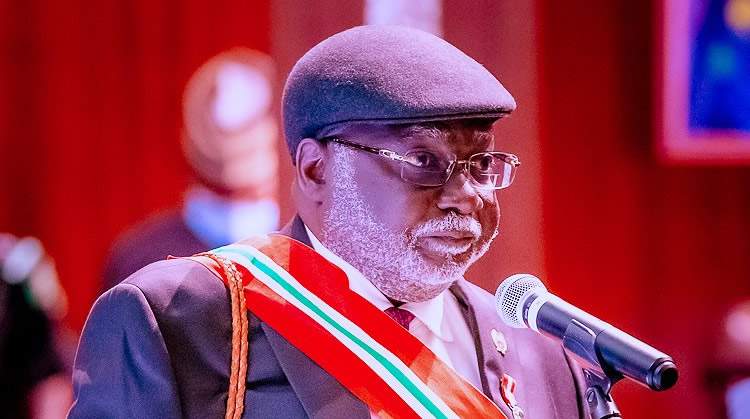Chief Justice of Nigeria Retires, Signs Off on New Supreme Court Rules
Justice Olukayode Ariwoola, the Chief Justice of Nigeria, has retired from his position after clocking 70. In his valedictory speech at the Supreme Court complex in Abuja, Ariwoola highlighted the need for the apex court’s rules to be updated to suit the times and address current challenges. To achieve this, he signed off on the new Supreme Court Rules 2024 earlier this month.
Ariwoola explained that upon assuming office as the Chief Justice of Nigeria two years ago, he was concerned about the rules regulating procedures in the apex court, which had been in place for 39 years, predating the advent of the internet and electronic transactions. Although practice directions had been issued periodically over the years to meet the demands of justice, the substantive rules were still from 1985.
He noted that the outdated rules could not be adequate for today’s challenges, citing the ubiquity of information technology, electronic transactions, and global telecommunication. To address this, Ariwoola empaneled a Rules Committee to review the 39-year-old rules and numerous extant practice directions comprehensively. The committee’s efforts culminated in the signing off of the New Supreme Court Rules 2024.
Ariwoola emphasized the importance of the rules of procedure in any court, stating that they must be dynamic and contemporary to meet the evolving demands of both the bar and the bench. He thanked his fellow justices, including the incoming Chief Justice of Nigeria, Justice Kudirat Kekere-Ekun, Justice Inyang Okoro, and Justice Moronkeji Ogunwumiju, for their dedication and commitment to the new rules.
The retired Chief Justice also acknowledged the contributions of Dr. Muiz Banire (SAN) and the President of the Nigerian Bar Association, Mr. Yakubu Maikyau (SAN).
In his speech, Ariwoola also touched on the Supreme Court’s workload, noting that a total of 1,124 cases were filed in the 2023/2024 legal year, which commenced in September 2023 and ended in July 2024. The cases included 435 civil cases, 269 civil motions, 219 criminal cases, and 102 criminal motions, as well as 89 political appeals and 10 originating summons.
Ariwoola expressed hope that the far-reaching decisions made at the Justice Sector Reform Summit in April, which was hosted by the National Judicial Institute, the Ministry of Justice, and the Nigerian Bar Association, will greatly assist the justice sector.
